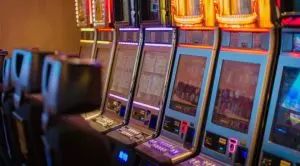 A psychiatrist organisation from Ireland demanded from the country’s government to impose a total ban on the advertising of gambling products during sporting events from the beginning of next year. The Irish College of Psychiatrists insists the ban on gambling ads is a necessary step towards curbing problem gambling in the country, which the organisation referred to as a “hidden epidemic”.
A psychiatrist organisation from Ireland demanded from the country’s government to impose a total ban on the advertising of gambling products during sporting events from the beginning of next year. The Irish College of Psychiatrists insists the ban on gambling ads is a necessary step towards curbing problem gambling in the country, which the organisation referred to as a “hidden epidemic”.
In its latest position paper, the College of Psychiatrists of Ireland describes problem gambling as a form of behavioral addiction that can lead to serious distress for those affected and their families. According to the psychiatrists, there is substantial evidence that suggests a link between gambling addiction and the high levels of gambling advertising.
The psychiatrists also recommended the introduction of special treatment channels to deal with what it deems a crisis for public health in Ireland. Additionally, data released by the Consultant Addiction Psychiatrists shows a disconcerting increase in the referrals for gambling-related problems during the lockdowns associated with the coronavirus pandemic.
Social isolation creates more gambling opportunities for vulnerable individuals who are forced to work from home. Combined with the high volumes of gambling advertising, this could further exacerbate the problem of addiction. One of the key authors of the paper, Professor Colin O’Gara, insisted the connection between gambling addiction and the copious betting ads can no longer go unnoticed.
Advertisements of such products are everywhere, from television to the jerseys of sports players and sideline banners. This causes people to associate the enjoyment of sports with wagering, which, in turn, leads to the normalisation of gambling. Professor O’Gara drew a parallel with tobacco products. He said ten years from now people would look back on the high volumes of bettings ads in sports and ask themselves how they allowed this to happen.
37% of Irish Adolescents Aged 16 Play Slot Machines
 Betting advertisements are way too prevalent in the country but what is worse, many of them are broadcast on television before the adult watershed, the Professor concluded. Ireland’s government must take urgent steps to tackle problem gambling, the paper says. This can be achieved through a variety of methods including raising awareness, educating the public about this addiction, adequate treatment services, and stricter control over gambling marketing.
Betting advertisements are way too prevalent in the country but what is worse, many of them are broadcast on television before the adult watershed, the Professor concluded. Ireland’s government must take urgent steps to tackle problem gambling, the paper says. This can be achieved through a variety of methods including raising awareness, educating the public about this addiction, adequate treatment services, and stricter control over gambling marketing.
The paper was launched in the wake of a recently released report by the European School Survey Project on Alcohol and Other Drugs (ESPAD). ESPAD, which involves independent researchers from over forty countries, reported that gambling participation rates among 16-year-old adolescents from Ireland are considerably higher than those in other European jurisdictions.
The figures released by ESPAD are rather disconcerting and indicate that around 37% of Irish adolescents from this age group play slot machines while 61% participate in sports wagering. By contrast, the average rates in other European countries were significantly lower at 21% for slot play and 45% for sports betting.
Doctor William Flannery, the President of the Irish College of Psychiatrists, emphasized the fact the coronavirus lockdowns have further exacerbated the problem. Isolation, boredom, and loneliness make it all the more difficult for vulnerable individuals to avoid triggers.
Such people find it harder to control themselves in the presence of increased online betting ads and the constant launch of newer gambling platforms. Ireland will see the arrival of a new gambling regulator next year that will have the remit to control betting sites, mobile gambling applications, and advertising policies.
- Author


